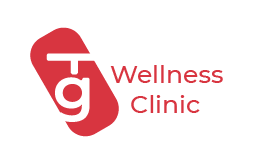Some differences between Traditional Chinese Medicine (TCM) and Western Medicine
/Traditional Chinese Medicine (TCM) and Western Medicine differ in several key aspects:
1. Philosophical Basis: TCM is based on the concepts of Yin and Yang, Qi (vital energy), and the Five Elements theory, while Western Medicine is grounded in scientific principles, anatomy, physiology, and evidence-based practices.
2. Approach to Diagnosis: TCM diagnosis involves examining the patient's pulse, tongue, and other physical signs, along with asking about symptoms and medical history. Western Medicine relies heavily on laboratory tests, imaging, and clinical examinations.
3. Treatment Methods: TCM treatments include acupuncture, herbal medicine, cupping, Moxibustion, Tuina, Guasha, Qigong and diet and lifestyle guidance, aiming to restore balance and harmony in the body. Western Medicine primarily uses pharmaceutical drugs, surgeries, and interventions based on scientific research and clinical trials.
4. View of Disease: TCM views illness as an imbalance or blockage of Qi and blood, whereas Western Medicine typically identifies diseases as specific pathogens, biochemical imbalances, or structural abnormalities.
5. Preventive vs. Reactive: TCM often emphasizes preventive measures and lifestyle adjustments to maintain health and prevent disease, while Western Medicine focuses more on treating symptoms and diseases after they occur.
6. Cultural Context: TCM is deeply rooted in Chinese culture and has been practiced for thousands of years, while Western Medicine has evolved from ancient Greek and Roman medical traditions and has become the dominant medical system in most parts of the world.
Overall, while both systems aim to promote health and treat illness, they have distinct approaches, philosophies, and treatment modalities.

